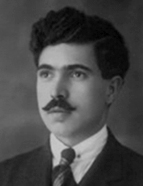

In the face of the impossibility of himself publishing such massive volumes, and with the books published between 1919 and 1929 being out of print, the situation faced by Estanco Louro was well summed up by Prista Monteiro in these words: “his career [was] blocked, his book forgotten…” (p. 269). But the work of Estanco Louro is fundamental and indispensable for studies of the Algarve in the fields of history, ethnography, geography, archaeology, sociology and linguistics. O livro de Alportel is a repertory of sources and bibliographical references for the history of the Algarve. But despite the individual value of each one of his works, it is the whole that constitutes a source, precious and unexplored, for a regional history. The long researches were conducted at his own expense, tramping the Algarve during the school holidays, gathering depositions, completing enquiries, annotating observations and reports. To separate his work of a linguistic character from his ethnographic work is to distort the reality that he attempted to capture, and to fragment the hermeneutic value of those sources for the research in progress.
O espólio literário do Dr. Estanco Louro, which the family keeps together, is vast, and as well as the studies already mentioned takes in various scattered studies of Portuguese literature and culture. The values that guided his investigations and his life are expressed very clearly in his work, right from the writings of his youth. They show a spirit of great intellectual independence, along with an extraordinary capacity for long working hours, in the field and in the office, and a firm belief in the progress of the country through rigorous scientific work. “I never asked anyone to preface any book of mine. Everything I write for the public should shrink from a tutelary mentality. No writer should be obliged to anyone, be obedient to anyone”, he declared, in 1927, in his dissertation submitted for the diploma in Camonian Studies.
Today the work of Estanco Louro remains unknown in academic circles, because it remains either unpublished or out of print. The contribution that he could provide to scientific discussion will only become clear with the publication and study of his work as a whole. However, the rich repository that he has left us as his legacy is a valuable documentary and historical heritage for the Algarve.
